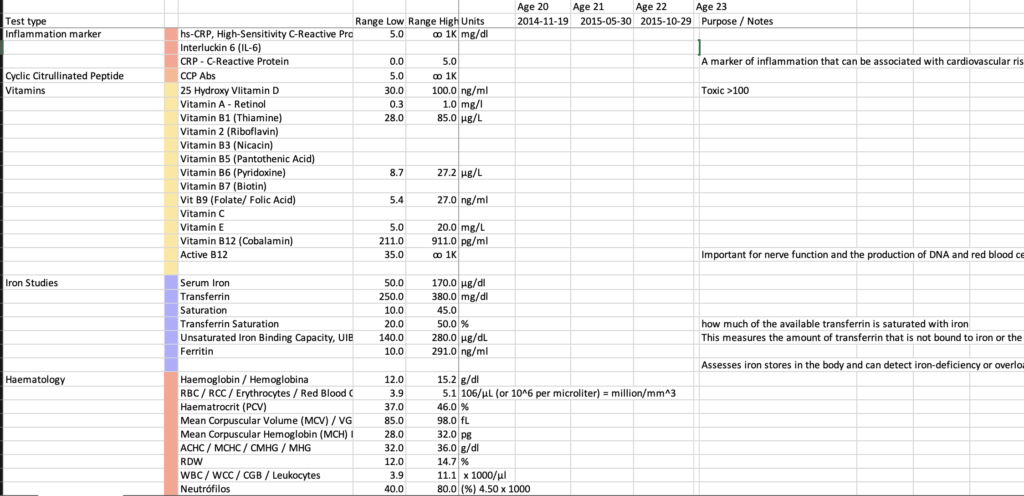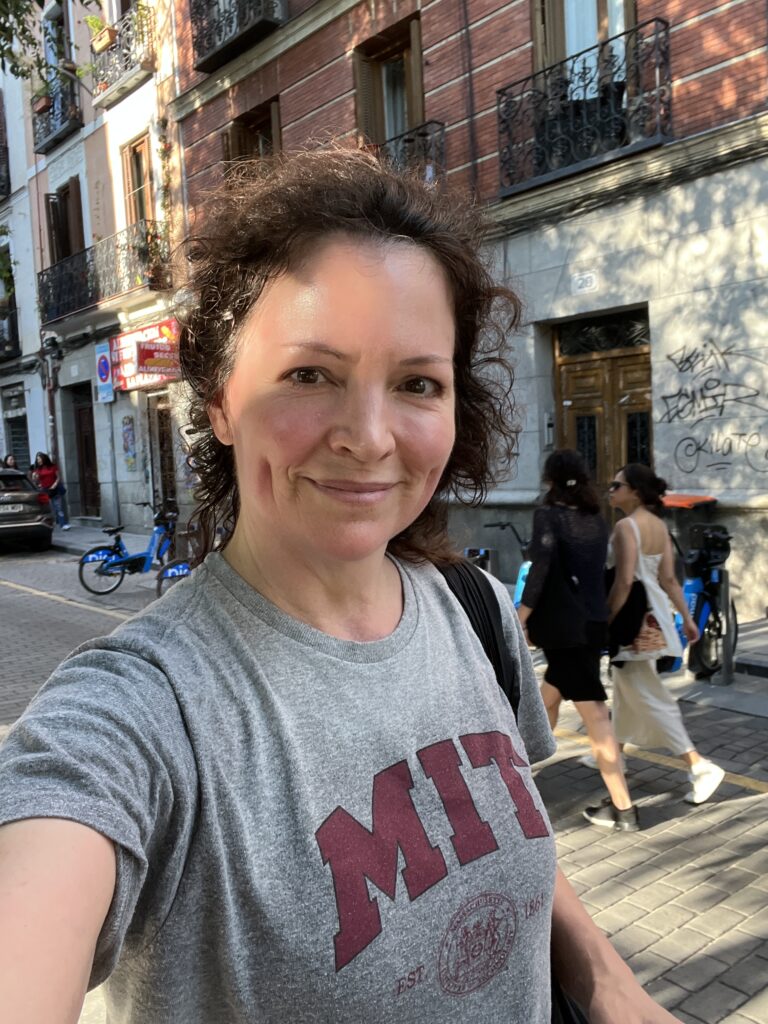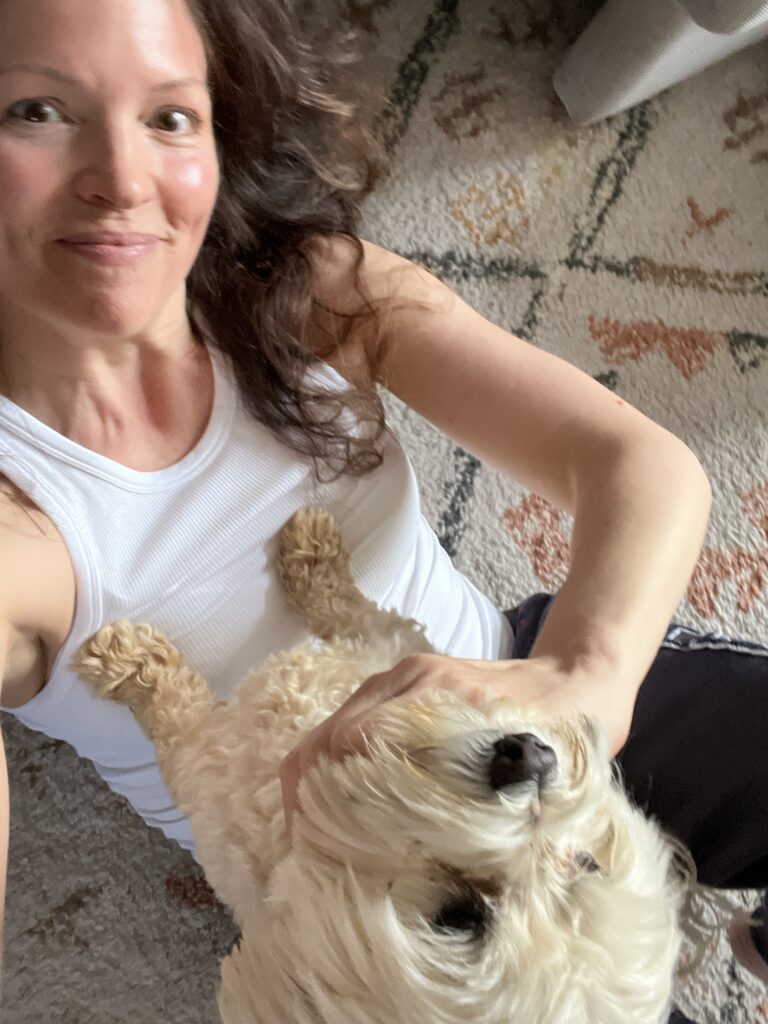I took a break from my normal eating habits for two years. Typically, I favor homemade and raw foods consisting of vegetables, proteins, and fruits. During this two-year period, however, I ate more fried foods, carbohydrate-rich foods, and I didn’t shy away from ultra-processed foods like Cheez-Its and chips. I even drank more alcohol. As for exercise, I mostly relied on walking 30 minutes or so daily and that’s it. It was a period of indulgence and relaxation. However, I was eventually at a crossroads: continue down this path or start exercising again and eating better?
The Indulgence Period
During this period, I introduced foods into my diet that I had previously avoided. I said yes to everything even though I still ate in moderation. I ate more sugar, both processed and fruits; fried foods which I typically never eat like fried mandioca and polenta frita; and carbohydrates. Since childhood, I’ve never fancied many higher carb foods like rice, potatoes, and pasta because I found them rather bland.
I also didn’t pay as much attention to my alcohol consumption during this period. If I was drinking more, I was likely eating less to compensate for the consumption. Though I still didn’t enjoy sugary foods, it’s safe to assume that my sugar intake crept up. Besides the sugar in wine, there were hidden sugars in packaged foods, sauces, beverages that I was just not considering.
The Turning Point
After two years of eating and living this way, I reached a pivotal moment. I had gained 15-20 pounds (6-9 kilograms) and I needed to decide whether to continue with this way of being. If not, I knew that I would need to make drastic changes and work hard to reclaim my health. I didn’t like the weight gain because I had been wearing the same sized clothing since high school. I was used buying clothes without trying them on. At the new heavier weight, I had to try everything on. I also had a hard time finding clothes that were flattering or that fit well. What I disliked most was the amount of time spent looking in the mirror at myself. I found myself disapproving of not only the clothes but myself. These internal conversations were not only unhealthy, they also ate into my productivity and joy.
Additionally, two years of poor eating habits were affecting my mood and my brain it seems. I was studying language courses at University and struggling to focus and retain all of the information coming at me. It was pretty clear that my new ‘diet’ had robbed me of energy and it affected my mood. I seemed more combative and found myself arguing more with my spouse, which is not normal for me.
I had always reserved eating and drinking as much as I wanted for holidays, but now this had become my entire lifestyle. At first, it was fun—probably even for the first year. But the degradation started multiplying, and I became less and less happy. I had nothing to look forward to when I took a real holiday. Nothing was special anymore. Nothing was a treat. I was not enjoying my life; in fact, it started to feel like hell. I was miserable. It was time to end the vacation mode and get back to taking care of myself.
Immediate Change
Two years of bad diet was not just making me emotional and heavier, my hair was also falling out. At first, I attributed it to a bad bleach job. However, after almost two years of fallout, it was clear that there was more going on. I tested and ruled out every other possibility before there was nothing left to try except diet. With all other possibilities ruled out, I changed my diet and cut out alcohol. Literally, my hair stopped falling out excessively (in chunks) within one day. That was the motivation that I needed to keep going.

The Impact of Indulgence on Health
A complete biometric screen revealed that I was the unhealthiest I had ever been. I was malnourished in some areas with elevated cholesterol for the first time, and several biomarkers that were now out of range. Plus, my joints were suffering. My knees were in bad shape. Walking up and down stairs was becoming painful and I could no longer run (not even one block) or my knees would swell. I had inflammation in my back and I relied on a heating pad to relieve the pain. It seemed to me that aches and inactivity led to more aches and further inactivity. I wondered if I’d be able to make it another 50 years. Two years prior I was doing parkour, running, swimming, and walking for miles every day. Yet, after just two years of careless eating and drinking, I had drastically altered my body and my health trajectory. This was a wake-up call.
Returning to Healthy Habits
For as long as I can remember, I have preferred a diet rich in vegetables, protein, and fruits with minimal bread, pasta, and potatoes. My dislike for flour products has been consistent since childhood. But my avoidance of potatoes, which are delicious, stemmed from having a grandmother with type-2 diabetes. Knowing that potatoes convert to simple sugars in the body, I made a conscious effort as a teenager to limit my intake of starches.
Sugar and food seemed to control my grandmother. She would marvel at the price of fast food meals saying, “I can’t make food for that price!”. She didn’t realize that the fast foods she was consuming were full of hidden sugars, which was of course terrible given that she was diabetic. I was determined to never become diabetic and have largely avoided potatoes and fast food since my teenage years.

Overcoming Past Struggles
Though most of my life I would say I have been in control of how I eat and have enjoyed a very healthy approach to diet and exercise. However, from ages 15 to 23, I struggled with bulimia, a reaction to a traumatic experience with a trusted adult. That event deeply affected me and upended my life for several years. It took a few years to heal my body and mind and restore a healthy mindset regarding my body. My nutritious diet, exercise, and outlook today is a result of that journey, not a manifestation of body image issues.
Embracing Balance
I enjoy food immensely, but when it comes to hunger, I prioritize quality and nourishment over dopamine. When I do indulge, such as enjoying dessert in Paris or fresh bread in Switzerland, I do so without guilt. My approach is about balance and appreciating the pleasures of good food when they arise. So, eating foods that I enjoy that give me energy and consuming alcohol in moderation. I don’t follow diet trends and I don’t diet. However, I do seek out and take recommendations of medical professionals, especially as my body and activity levels demand.
The Importance of Regular Health Checks
Regular biomarker tests are crucial in understanding the body’s needs and state. I rely on regular laboratory tests to provide insights into how the various systems in my body are functioning. I created an excel spreadsheet with heat mapping to at-a-glance illuminate important patterns and problems. Having regular labs performed can help me address deficiencies before they put undue strain on the rest of my body. There have been times when I needed labs done every six months due to an issue that my doctor and I were trying to correct. Otherwise, I follow the general health guidelines recommendations of having a yearly full panel completed.
Financial and Health Benefits of Thoughtful Eating
Avoiding ultra-processed foods benefits both health and finances. Fresh, unpackaged foods are often cheaper and healthier. Apps like Yuka help me check ingredients in packaged foods and body care items, ensuring I avoid harmful ingredients and low-quality products. I used to shop at a Co-op, and I bought ultra-processed foods marketed as healthy and organic. Last year, I scanned those foods with Yuka and realized I wouldn’t buy any of them today. I felt horrified and foolish for paying a premium for greenwashed junk food that my kids consumed. The lesson: organic ultra-processed food is still ultra-processed food. Cooking my own food is always better.
A Balanced Approach to Life
My goal is to live a balanced life, enjoying the pleasures around me without compromising my health. Intense workouts are fun, but not to the point of taxing my body, and not so that I may eat sugar. Ideally, my workouts include doing things that I love (jiu jitsu, sailing, kayaking) and eating good foods that give me energy and strength to do support these activities. I actually don’t want to think about my body or even food that much. It is important to me to be able to enjoy meals, vacations, and nights out with friends without guilt. Eating healthy and avoiding fried foods and sugar, or at least being thoughtful about my sugar intake, allows me to do all of this. And after cutting sugar from my life 40 years ago, I can say that I have no regrets about not eating the candy or the ice cream.
Turning My Health Around: Hair Loss and Bad Knees to Energy and Strength
After recognizing that my lifestyle had become an extended, unhealthy vacation, I made a dramatic change. Within one day of eating well and cutting out alcohol, it was clear that my hair was falling out simply because of poor nutrition. Despite weakened knees, I began practicing Brazilian jiu-jitsu three times a week. In three months, I lost a few kilos. Several months later, I had lost a total of 6 kilos (15 pounds), and my hair started growing back.
Additionally, I started taking supplements to address common deficiencies (Vitamin D, Omega-3, Magnesium, Probiotics) and age-related deficiencies (Amino Acids, ALA, NMN, Resveratrol). After nine months of improved diet and regular exercise, my knees were stronger. After a year of jiu-jitsu, I added strength training to my routine. One year and a half later, I no longer need knee supports. Though I won’t be running for recreation anymore, I’m happy that I can run again. Stairs are again, no problem, even with heavy luggage. My labs show that all is very well, and my cholesterol markers were perfect. This journey has taught me the profound impact of proper nutrition and regular exercise on overall health and well-being.

Conclusion and Lessons from my Two-Year Experiment of Eating Poorly
I think I’ve always had a bit of envy for people who could eat a pastry without a second thought. I’m glad I was able to experience their perspective because I learned valuable lessons. My body doesn’t function well on sugar and I’m grateful that my experiment didn’t do lasting harm to my health. I learned that I was not missing out on life just because I don’t eat sugar. I learned that it’s okay for me to eat the way I liked without feeling embarrassed. Returning to a healthier diet that I preferred and a more active lifestyle has significantly improved my well-being. I don’t recommend anyone try this experiment. It was hard on me, and I didn’t like the way that I had changed. Even still, at the end, I struggled to reverse the course. An easier option would be to listen to your body and your doctors. Get regular health checks. And strive for balance with some good basic cooking and regular movement. And if you make it to Geneva or Paris, order the dessert and eat the bread. You won’t regret it.
Recommended Readings and Media
Book: The Glucose Revolution, Jessie Inchauspé
Book: Outlive, the science and art of Longevity, Dr. Peter Attia
Podcast: David A. Sinclair
Stay off My Operating Table®: A Heart Surgeon’s Metabolic Health Guide to Lose Weight, Prevent Disease, and Feel Your Best Every Day, Philip Ovadia
Youtube: Diary of a CEO with Dr. Daniel E. Lieberman
Book: Breath, James Nester
Youtube: Sara Gottfried, M.D on the Huberman Lab. Topic: Perimenopause
